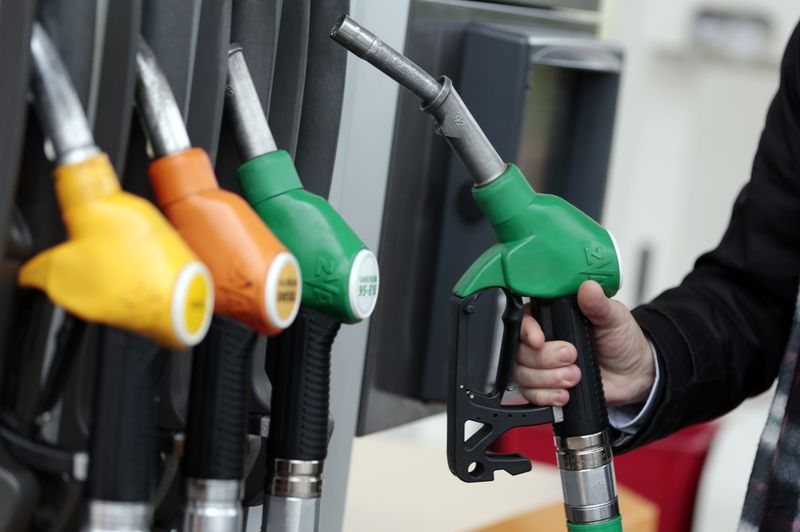(Bloomberg) -- Gas station owners in the US are finally making higher profits selling fuel now that pump prices have fallen from record levels over the past few weeks.
That may seem counterintuitive, but here’s what’s behind the numbers.
The US rack-to-retail margin, which measures the difference between the price a retailer pays for gasoline and what they charge at the pump, rose to an average of 56 cents a gallon since fuel prices began falling on June 14, according to price provider OPIS and auto club AAA. That is more than double the 27-cent average for the two months prior to that, when prices mostly rose, including a record bull-run in early June.
Still, President Joe Biden was quick to point fingers over the July 4th weekend, calling out retailers in a tweet asking them to lower fuel prices to “reflect the cost you’re paying for the product.”
On the one hand, that criticism may seem warranted. However, the market dynamics of retail-fuel markets indicate otherwise.
In general, retail margins for fuel narrow when prices are high and widen when prices are low. This is because when fuel costs rise, gas station owners tend to hold back price increases to attract customers and recoup the losses when prices go down, according to Jeff Lenard at the National Association of Convenience Stores, an industry group for convenience and fuel retailers.
Current margins, which balance out lower profits when prices are rising, do not justify the president’s ire, Lenard said in a phone interview. When high prices constrict margins, retailers struggle to break even on fuel. Station owners also tend to see lower convenience sales as drivers spend less on items such as cigarettes and snacks, where they make most of their profits.
A retailer typically makes around 10 cents from each gallon of fuel they sell over the course of a year after paying credit-card processing fees, rent, labor and other overhead costs, which have also risen in recent months as inflation rates soared.
When pump prices are high, “everyone is frustrated” from the consumer to the retailer to the president, said Lenard. “But finger-pointing, especially when it’s misdirected, doesn’t help,” he said.
However, US drivers are starting to see some relief at the pump amid an unseasonal drop in consumption and fears of a wider economic slowdown, which have sent oil prices below $100 a barrel for the first time since May. The average regular gasoline price has fallen for 22 straight days, according to AAA data, the longest losing streak since April 2020.
©2022 Bloomberg L.P.
